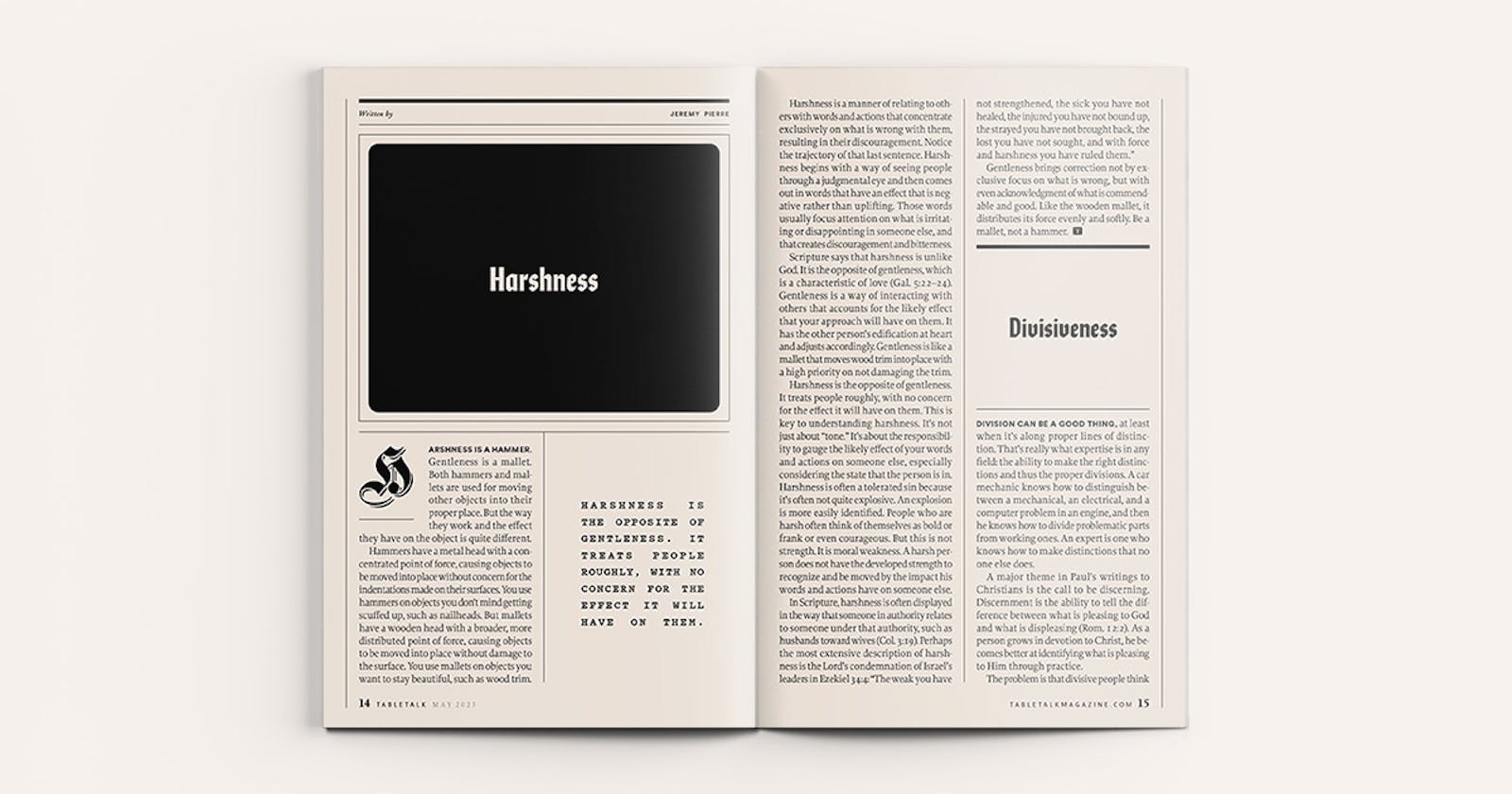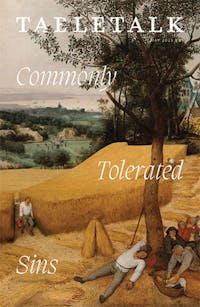
Request your free, three-month trial to Tabletalk magazine. You’ll receive the print issue monthly and gain immediate digital access to decades of archives. This trial is risk-free. No credit card required.
Try Tabletalk NowAlready receive Tabletalk magazine every month?
Verify your email address to gain unlimited access.
Harshness is a hammer. Gentleness is a mallet. Both hammers and mallets are used for moving other objects into their proper place. But the way they work and the effect they have on the object is quite different.
Hammers have a metal head with a concentrated point of force, causing objects to be moved into place without concern for the indentations made on their surfaces. You use hammers on objects you don’t mind getting scuffed up, such as nailheads. But mallets have a wooden head with a broader, more distributed point of force, causing objects to be moved into place without damage to the surface. You use mallets on objects you want to stay beautiful, such as wood trim.
Harshness is a manner of relating to others with words and actions that concentrate exclusively on what is wrong with them, resulting in their discouragement. Notice the trajectory of that last sentence. Harshness begins with a way of seeing people through a judgmental eye and then comes out in words that have an effect that is negative rather than uplifting. Those words usually focus attention on what is irritating or disappointing in someone else, and that creates discouragement and bitterness.
Scripture says that harshness is unlike God. It is the opposite of gentleness, which is a characteristic of love (Gal. 5:22–24). Gentleness is a way of interacting with others that accounts for the likely effect that your approach will have on them. It has the other person’s edification at heart and adjusts accordingly. Gentleness is like a mallet that moves wood trim into place with a high priority on not damaging the trim.

Harshness is the opposite of gentleness. It treats people roughly, with no concern for the effect it will have on them. This is key to understanding harshness. It’s not just about “tone.” It’s about the responsibility to gauge the likely effect of your words and actions on someone else, especially considering the state that the person is in. Harshness is often a tolerated sin because it’s often not quite explosive. An explosion is more easily identified. People who are harsh often think of themselves as bold or frank or even courageous. But this is not strength. It is moral weakness. A harsh person does not have the developed strength to recognize and be moved by the impact his words and actions have on someone else.
In Scripture, harshness is often displayed in the way that someone in authority relates to someone under that authority, such as husbands toward wives (Col. 3:19). Perhaps the most extensive description of harshness is the Lord’s condemnation of Israel’s leaders in Ezekiel 34:4: “The weak you have not strengthened, the sick you have not healed, the injured you have not bound up, the strayed you have not brought back, the lost you have not sought, and with force and harshness you have ruled them.”
Gentleness brings correction not by exclusive focus on what is wrong, but with even acknowledgment of what is commendable and good. Like the wooden mallet, it distributes its force evenly and softly. Be a mallet, not a hammer.
